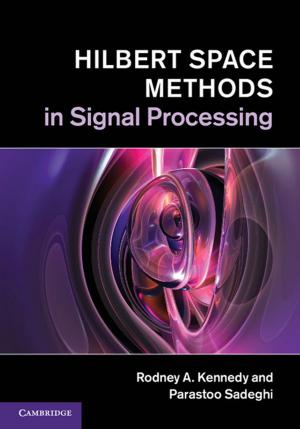Rethinking the Judicial Settlement of Reconstruction
Nonfiction, Reference & Language, Law, Social & Cultural Studies, Political Science, Government| Author: | Pamela Brandwein | ISBN: | 9780511861772 |
| Publisher: | Cambridge University Press | Publication: | February 21, 2011 |
| Imprint: | Cambridge University Press | Language: | English |
| Author: | Pamela Brandwein |
| ISBN: | 9780511861772 |
| Publisher: | Cambridge University Press |
| Publication: | February 21, 2011 |
| Imprint: | Cambridge University Press |
| Language: | English |
American constitutional lawyers and legal historians routinely assert that the Supreme Court's state action doctrine halted Reconstruction in its tracks. But it didn't. Rethinking the Judicial Settlement of Reconstruction demolishes the conventional wisdom - and puts a constructive alternative in its place. Pamela Brandwein unveils a lost jurisprudence of rights that provided expansive possibilities for protecting blacks' physical safety and electoral participation, even as it left public accommodation rights undefended. She shows that the Supreme Court supported a Republican coalition and left open ample room for executive and legislative action. Blacks were abandoned, but by the president and Congress, not the Court. Brandwein unites close legal reading of judicial opinions (some hitherto unknown), sustained historical work, the study of political institutions, and the sociology of knowledge. This book explodes tired old debates and will provoke new ones.
American constitutional lawyers and legal historians routinely assert that the Supreme Court's state action doctrine halted Reconstruction in its tracks. But it didn't. Rethinking the Judicial Settlement of Reconstruction demolishes the conventional wisdom - and puts a constructive alternative in its place. Pamela Brandwein unveils a lost jurisprudence of rights that provided expansive possibilities for protecting blacks' physical safety and electoral participation, even as it left public accommodation rights undefended. She shows that the Supreme Court supported a Republican coalition and left open ample room for executive and legislative action. Blacks were abandoned, but by the president and Congress, not the Court. Brandwein unites close legal reading of judicial opinions (some hitherto unknown), sustained historical work, the study of political institutions, and the sociology of knowledge. This book explodes tired old debates and will provoke new ones.















